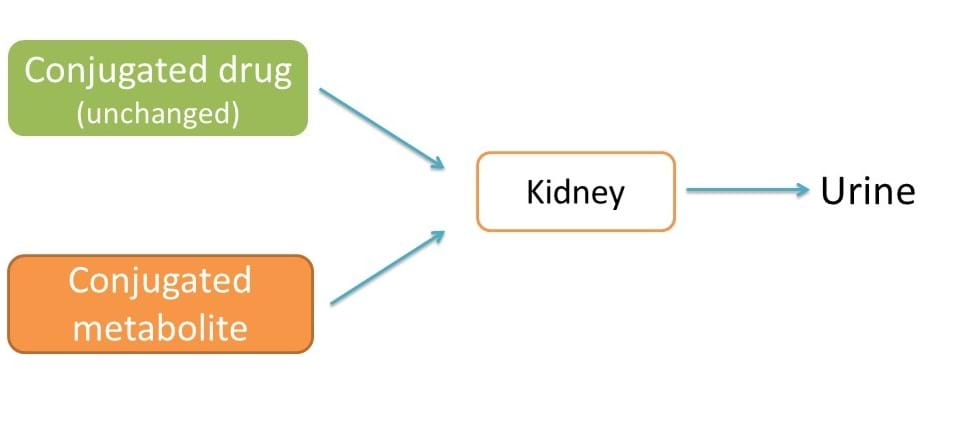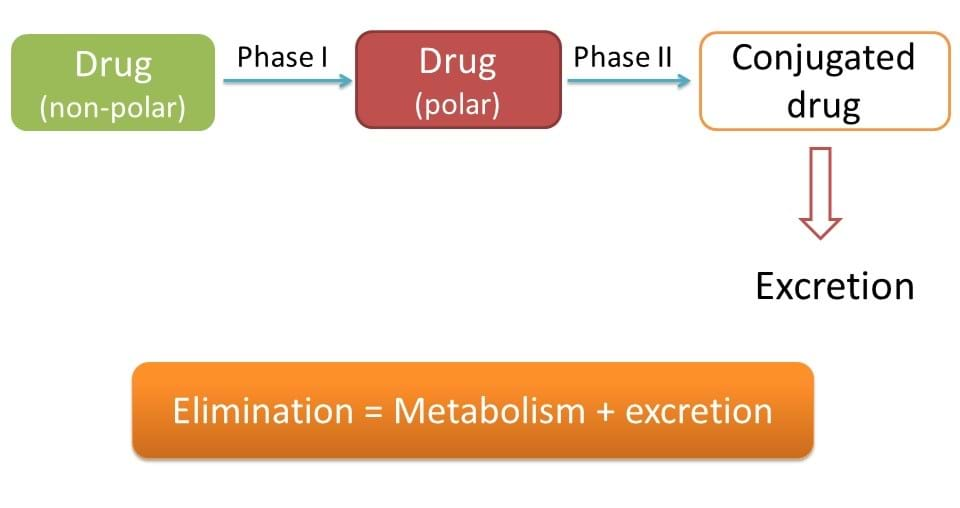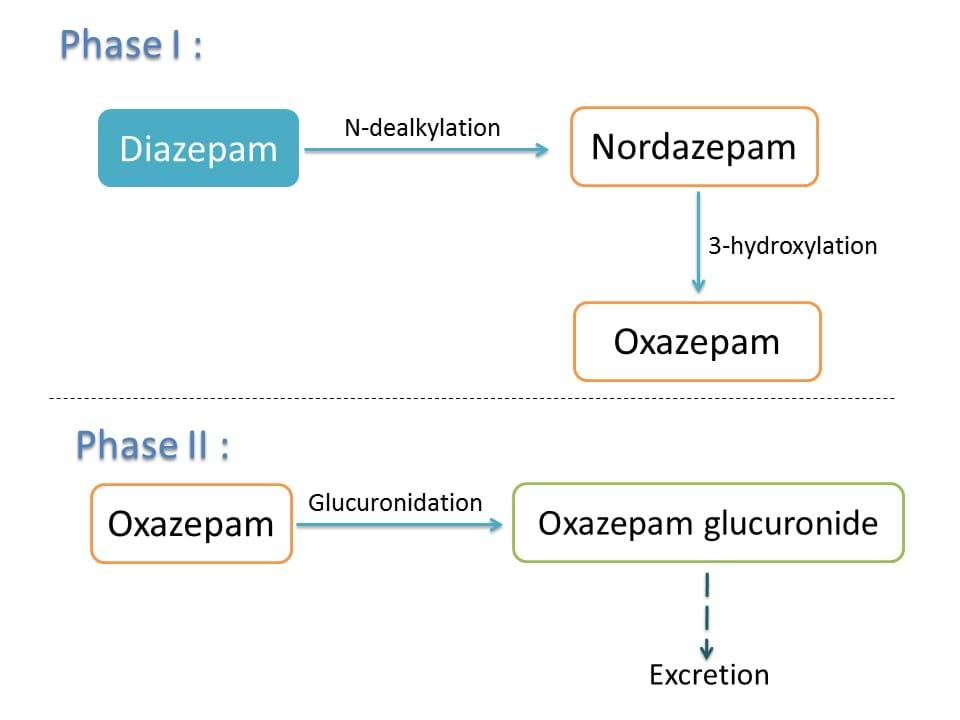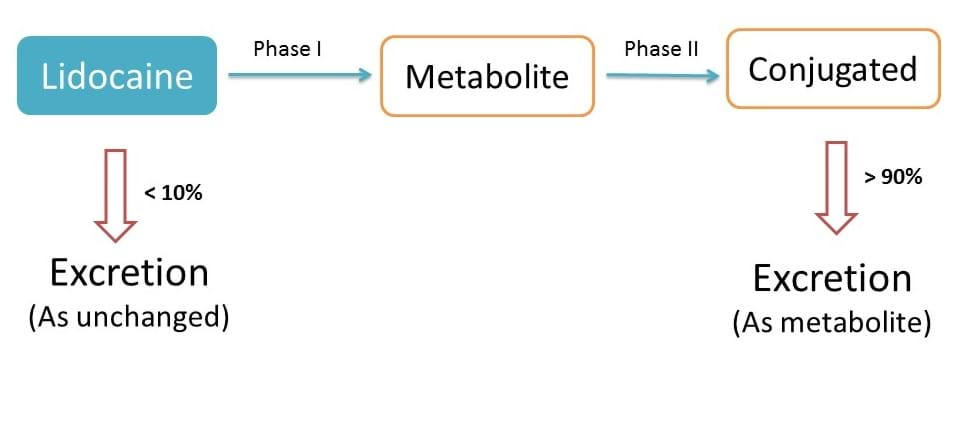Excretion and elimination : are both same?
by egpat Posted on 25-07-2017
Even the final goal of the two processes is same i.e. to decrease serum concentration of xenobiotics, a little margin of difference exists between the two processes.

Excretion is a process of removal of xenobiotic out of the body through urine by the renal system. In order to be excreted by renal system, the xenobiotic or drug should be polar.
On the other hand, elimination is a broad process of removal of the drug from the body by both hepatic metabolism as well as renal excretion. Hepatic metabolism converts non-polar drugs into polar metabolites. Then renal system excretes these polar metabolite out of the body into urine.

Hence excretion is a part of elimination.
Drugs eliminated by both metabolism and excretion
Most of the times, elimination involves both of the process viz metabolism and excretion.
For example, Diazepam is eliminated by two step process
Step 1: hepatic metabolism
Diazepam is metabolised by phase I and phase II reactions.

Phase I involves conversion of non-polar diazepam into it’s polar metabolite , Oxazepam.
Phase II involves conjugation of oxazepam to make the molecule large enough to be retained in the renal tubules during glomerular filtration.
Step 2: Renal excretion
Now the conjugated metabolite of diazepam is excreted by the renal system.
Drugs mainly eliminated by excretion
The main purpose of metabolism is to convert a nonpolar drug into polar metabolite. If the drug is already polar, then it can be directly excreted without metabolism. For example, oxazepam is a benzodiazepine which is already polar and can be directly excreted unchanged in the urine. Ofcourse, conjugation is a common for every drug even it is polar.
Drugs mainly eliminated by metabolism
In few of the cases, drugs which show high extraction ratio are completely metabolized.

For example, lidocaine is highly metabolized by hepatic system and very less amount is available for excretion as unchanged. Around 90% of the drug is metabolised and only around 10% is excreted as unchanged. So clearance of the drug from serum mainly depends on hepatic metabolism.